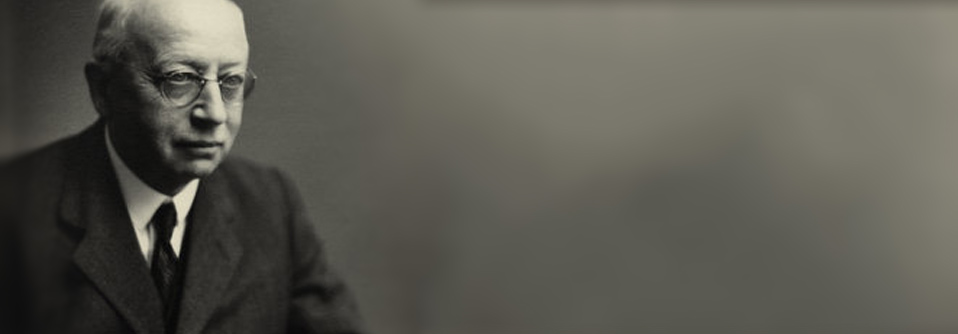Alfred Zimmern’s Brave New World: Aberystwyth in 1919 and After

‘The tents have been struck and the great caravan of humanity is once more on the move.’ ‘We are making the world safe for democracy.’ Thus General Smuts and President Woodrow Wilson on the new post-war outlook in 1919.1
There was an apocalyptic mood, symbolised by the creation of the Woodrow Wilson chair of International Politics in the University College of Wales, Aberystwyth, in 1919, the first such university chair anywhere in the world. It shows vividly how the optimism and brave new world idealism of the immediate post-war period focussed on the creation of the new League of Nations at the Paris Peace Conference in 1919. The naming of the chair after Wilson reflected the fact that the idea of a League of Nations was in practice very much an Anglo-American one. Wilson had developed the idea during the war – the League provided the climax of his famous Fourteen Points. He regarded it as the pivotal aspect of the Peace Treaty signed at Versailles, and got his close friend and confidant, Colonel House, to work out a detailed scheme.2 At the peace conference at Paris that spring and summer, it was widely noted that Wilson seemed prepared to make concessions on other matters – the composition of Czechoslovakia and Poland, even German reparations – in order that his cherished idea of the League could come about.
£3.00
or to access all content on this site, join today

For £35 a year you can access all lectures and articles on this site, attend lectures and receive our yearly Transactions
Filter by Volume
Filter by Subject
- 16th Century
- 17TH CENTURY
- 18th century
- 19th century
- 20th century
- 21ST CENTURY
- Abertillery
- Acts of Union
- Archaeology
- Architecture
- Arts
- Autobiography
- Bible
- bilingualism
- Biography
- Burma
- Business
- Cardiff
- chemistry
- CHURCH HISTORY
- Climate change
- constitutional
- contemporary
- CULTURAL HISTORY
- Cycling
- Cymmrodorion Society
- David History
- David Jones
- Development Bank of Wales
- Devolution
- Dylan Thomas
- EARLY CIVILISATION
- ECCLESIASTICAL
- ecology
- Economics
- Education
- Edward Lhuyd
- eighteenth century
- Environment
- Film
- Folk Song
- Geology
- health
- Heritage
- Higher Education
- Historiography
- History
- History of Art
- History of Medicine
- History of music
- History of the Book
- history; History
- Horticulture
- Industrial History
- Intellectual History
- Iolo Morganwg
- Islam
- Jews
- John Nash
- journalism
- Language
- Law
- Law constitutional
- Legal History
- Legal Law
- Literary History
- Literature
- Liverpool
- Lloyd George
- London Welsh
- Male voice choirs
- Manuscripts
- MATHEMATICS
- Media
- medieva
- medieval
- Medieval History
- Medieval Literature
- medieval Poetry
- Military History
- Museums
- Music
- Myth
- OBITUARY
- OCCULT
- Owain Glyndŵr
- PACIFIST MOVEMENT
- Peter Warlock
- Philadelphia
- Poetry
- political
- Political History
- Politics
- PREHISTORY
- prose fiction
- Railways
- Religion
- Religious History
- SCHOLARSHIP
- Science
- sixteenth century
- social
- Social History
- Sport
- Suffragette movement
- Swansea
- THEATRE
- Tourism
- travel
- Tudors
- twentieth century
- UNIVERSITIES
- Urban History
- Vikings
- Waldo Williams
- Wales
- war
- wellbeing
- WELSH CULTURE
- Welsh Development
- Welsh development and investment
- Welsh Language
- WELSH PEOPLE
- welsh society
- Welsh writing in English
- Welsh; History
- Wild Wales
- women's history
- WRITING HISTORY
- WW1
- WW2

